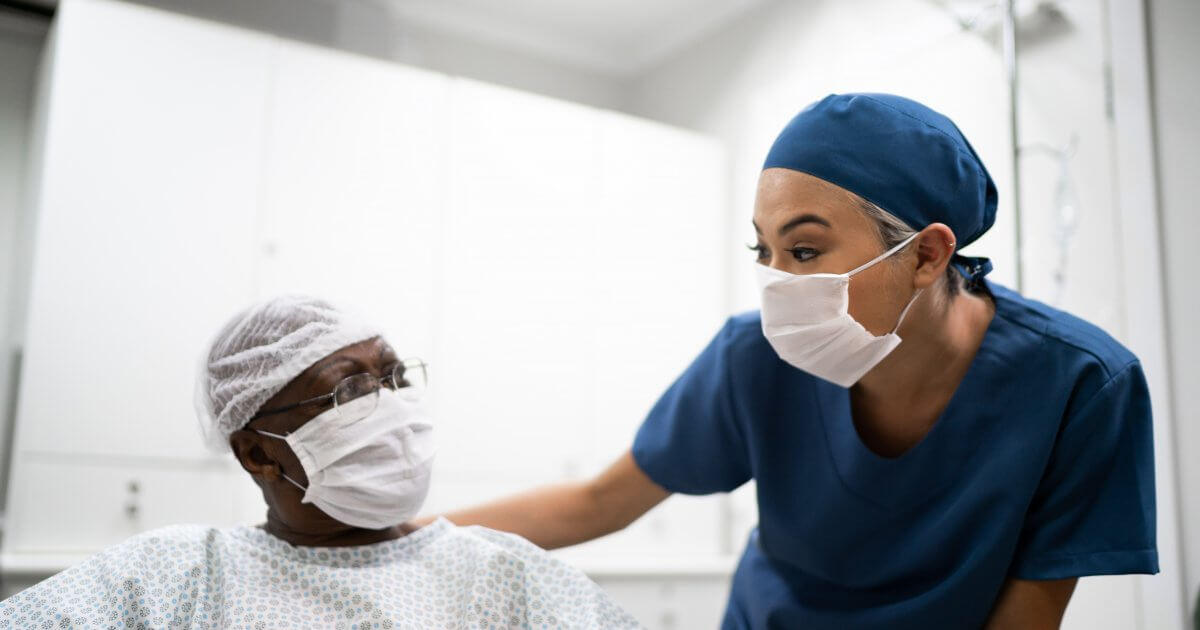By Chris Woodyard
Two-thirds of oncologists said they fear non-white patients experience worse cancer outcomes, according to a study released by leading cancer advocacy groups.
Read MoreRELATED: The SurvivorNet Community Is Working to Close the Gap
The December survey also revealed 63% of African American and 67% of Latinos cancer patients, survivors and caregivers reported having had a negative experience with their cancer-care team, compared to 43% of whites.
The need for improvement couldn’t be greater: African-Americans have the highest death rate and lowest survival rate for most cancers among racial and ethnic groups, the American Cancer Society has reported.
But during the NCCN online meeting, attended by hundreds of doctors, nurses, pharmacists and other health-care professionals involved in cancer treatment, overwhelming majorities taking part in snap polls acknowledged there was a problem and vowed to try to take steps to address it.
The group released an Equity Report Card that includes 21 measurable oncological practice changes. They include a better effort toward diversity in hiring and retention of cancer specialists, mandatory anti-bias training, greater involvement with community groups and trying to make sure minorities are better represented in clinical trials.
"We frequently know many minority patients and at-risk patients from different populations are simply just not asked about participating in clinical trials," Winn said.
RELATED: Why Do So Few Black Men Get Cancer Screenings?
He cited figures that only 3% of Blacks and 6% of Latinos have been represented in those taking part in clinical trials, which "obviously gives us room for significant improvement."
Some of the recommendations come from lessons learned during the coronavirus pandemic, such as making greater use of data from health information technology. It can be employed to help pinpoint bias in the system.
Data can be used in a way that helps improve conversations and decision making between providers and patients that helps negate bias.
"Communication was one of those critical areas where there appear to be great opportunity for improvement," said Shonta Chambers, executive vice president for health equity initiatives and community engagement for the National Patient Advocate Foundation.
As a means of better community engagement, one initiative recommends that providers ally with religious organizations or community-based groups. Chambers acknowledges, however, it's not always easy. Providers may be hesitant about finding a suitable group. "There could be apprehension about where to start or who to start with," she said.
Chambers co-chaired the Elevating Cancer Equity Working Group with Winn to create recommendations.
Participants were supportive of the ideas, generally agreeing new steps need to be taken to reduce or eliminate bias in light of the survey's findings, although not all will be easy to implement.
The survey found that not only did the 600 patients and their families report higher incidences of negative experiences, majorities believed racial bias is occurring in cancer care.
Oncologists appear to agree. Some four in 10 acknowledged it is a possible they unintentionally were racially biased in treating cancer patients of different racial or ethnic backgrounds.
Besides working internally with members, those seeking reforms are also looking to Congress and federal agencies to help bring about change. The Food and Drug Administration, for instance, could consider diversity when it comes to reviewing clinical trials before approving new medications, the NCCN says.
Winn said overall, he is encouraged with some provider groups already trying to make improvements.
"We will learn from those groups that are doing it," he said. "We will be knocking on your door."
Black Women Die From Breast Cancer at Shockingly Higher Rates Than White Women
Learn more about SurvivorNet's rigorous medical review process.


